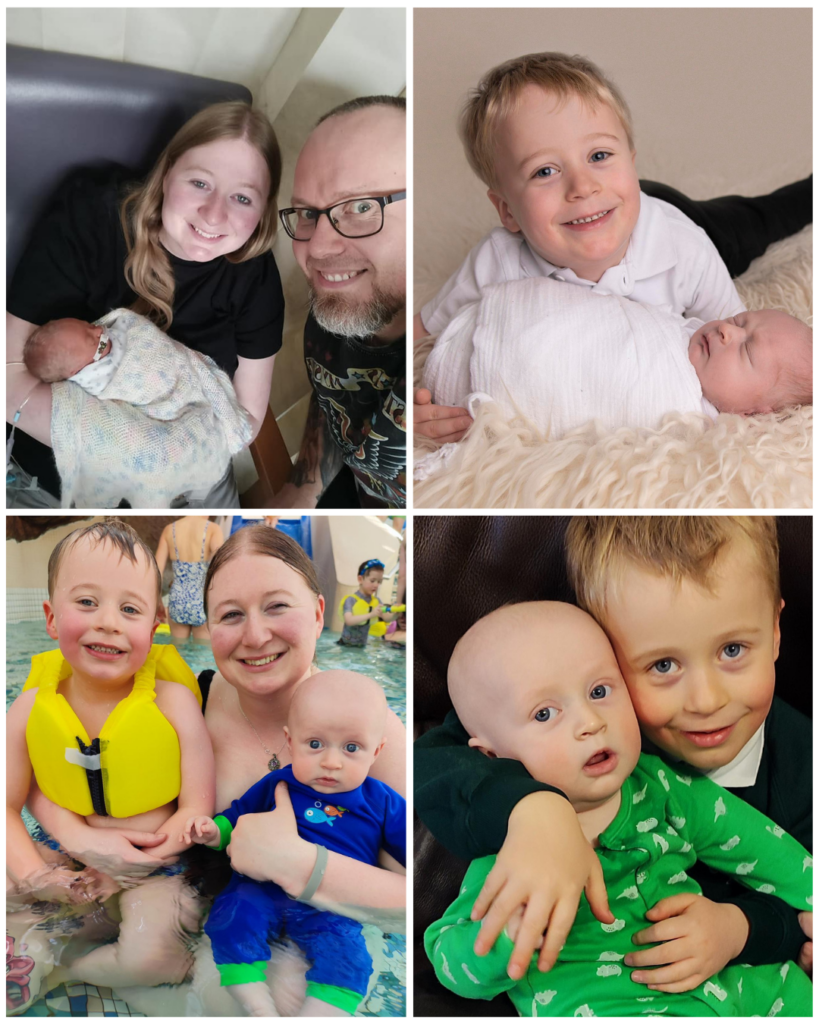News Hub
Durham family reflect on son’s unexpected arrival this World Prematurity Day

World Prematurity Day (17 November) is a global movement to raise awareness of premature birth and the impact it can have on families, like Brandon’s.
Sarah and Paul Farrow’s life was turned upside down when their first child was born 12 weeks early when they were over 270 miles away from home.
What had started as a weekend break in London to celebrate Sarah’s birthday turned into a worrying and stressful 18 day stay in the capital city, spending their every waking hour in the Neonatal Intensive Care Units at two hospitals after baby Brandon’s unexpected arrival into the world.
When the Children’s Air Ambulance (TCAA) was mobilised to transfer Brandon and his mum to a hospital near their home in Durham, a difficult situation became a lot easier, and Sarah felt huge relief to be heading north again where she and Paul have a network of friends and family.
“We had been in London for nearly three weeks with just a small bag of clothes. Paul was going to have to return to work so I would have been in London on my own. Getting home meant we could stay together as a family until Brandon was well enough to go home. It meant everything to us,” she says.
The couple had gone to Newham University Hospital after Sarah developed painful stomach cramps on their second day in London.
Four hours later Brandon was born naturally weighing 3lb 4oz.
Like many premature babies he needed to be intubated because he couldn’t breathe for himself. As his breathing improved doctors became worried that he might have a perforated bowel and so Brandon and his mum were blue-lighted in a land ambulance to the Royal London Hospital for an emergency operation.
Thankfully surgeons discovered that Brandon’s bowel had self-healed but the operation took its toll on his tiny body and he had to be intubated and given morphine to help his recovery.
Brandon was being fed via an intravenous line in his foot and had to be able to tolerate nasal tube feeds before he could be transferred to a hospital nearer to home. He was 18 days old when doctors decided he could be moved.
The Children’s Air Ambulance took off from our Doncaster base and flew to Barnsley to pick up a specialist neo-natal team from Embrace – Yorkshire & Humber Infant & Children’s Transport Service, part of Sheffield Children’s NHS Foundation Trust.
They then flew to London to collect Brandon and Sarah.
“Brandon was in an incubator and on oxygen. He didn’t like being in a confined space or wearing ear defenders, so it was a good thing that the transfer time was minimised by flying in the helicopter as he clearly wasn’t very happy,” says Sarah.
Being able to travel with her son was a great comfort. “I could see all the monitors, so I knew that everything was OK during the flight which was a great comfort,” she adds.
It took one hour 48 minutes to fly the 271 miles from London to Durham compared to a road journey of four hours 40 minutes.
The helicopter landed on playing fields near University Hospital of Durham where a land ambulance was waiting to take Brandon to the Special Care Baby Unit.
It was another five and a half weeks before he was finally allowed home, but Sarah and Paul will forever be grateful to the Children’s Air Ambulance and Embrace for safely transferring their son to a hospital where he could get the specialist care he needed close to the family home.
Since his transfer, Brandon is doing well, and he’s recently started school, which he was extremely excited about. He is Paw Patrol obsessed and loves to play with vehicles – especially his toy helicopters.
He became a big brother, to baby Cameron, and has taken to the job like a pro, being kind and attentive to his little brother.
In this time, the Children’s Air Ambulance has developed into the pioneering service it is today. The charity collaborated with Embrace and two other Clinical Partner Teams – Southwest Neonatal Advice and Retrieval (SoNAR) and Southampton Oxford Neonatal Transport (SONeT) – to create three bespoke state-of-the-art Neonatal Transport Systems (incubators), meaning it can fly even the smallest and most fragile of premature babies.
These incubators have been used over 70 times already this year, reducing the anxiety and worry of the parents, reducing the time taken for the infants to get the specialist support they need, and getting babies and families back together after they’ve had this specialist input, avoiding long road journeys, and reducing the time spent outside of hospital.
“Brandon was born in London, over 300 miles away from our home in Durham, we would have struggled to return home without the air ambulance. My husband had to return to work in the North East, and so TCAA allowed us to stay together as a family and get through his hospital stay together,” added Sarah.

